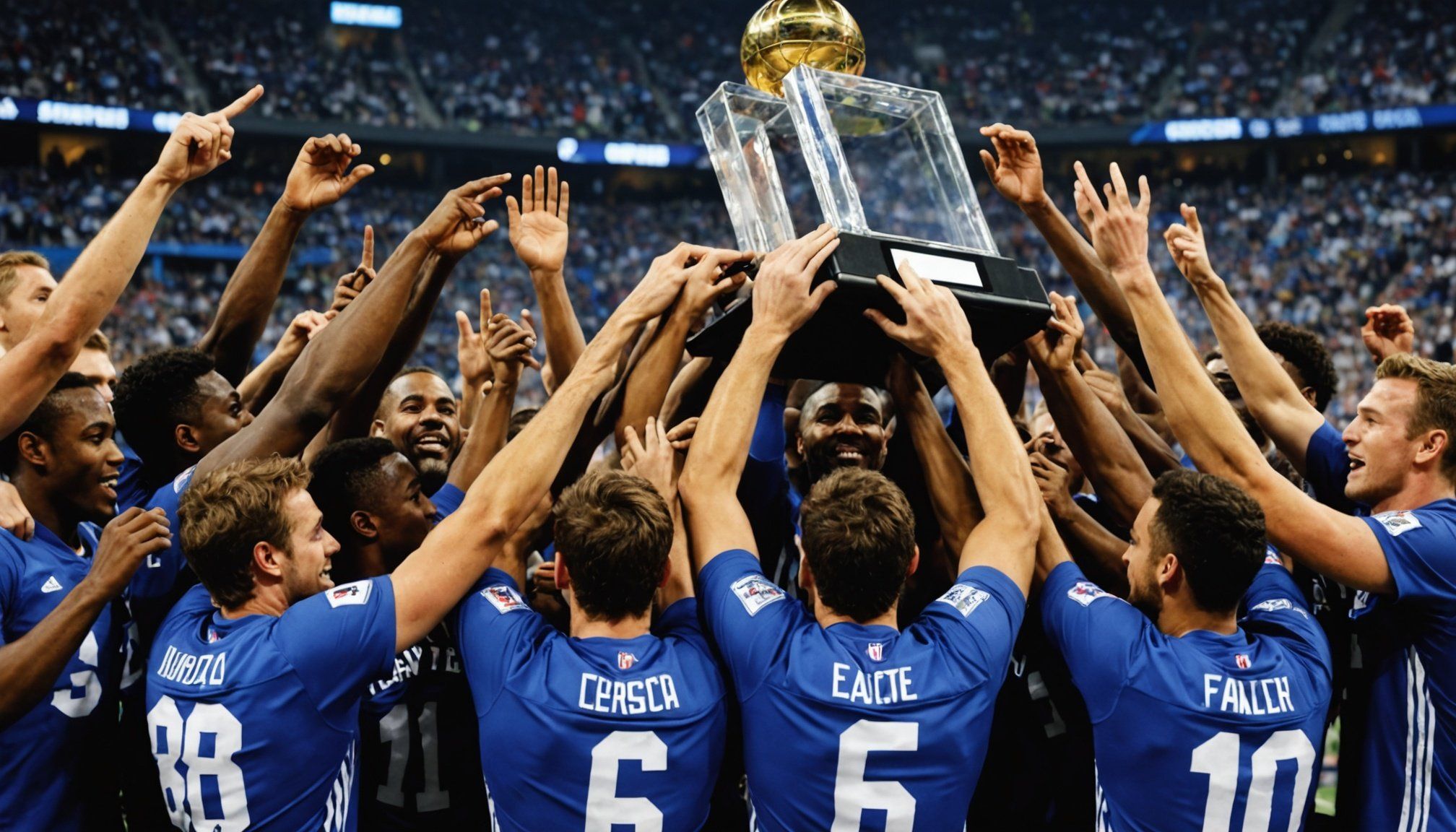The Role of Social Media in Team Communication
Social media communication has revolutionised how professional sports teams interact and collaborate. Platforms such as Twitter, Instagram, and Facebook facilitate team collaboration by providing a space for real-time updates and sharing information swiftly. The integration of digital interaction tools enhances the synergy, allowing team members to coordinate effectively.
With real-time updates, social media platforms offer unique advantages. For instance, a coach can promptly communicate last-minute changes in strategy through a group chat. This immediacy in social media communication can significantly influence team dynamics, enhancing responsiveness and adaptability during competitions.
Also to read : Unleashing Peak Performance: The Game-Changing Impact of Virtual Reality Cognitive Training on High-Speed Sports
One successful strategy involves using team collaboration features inherent in these platforms. For example, creating private groups on Facebook allows for streamlined communication and planning, without the distractions of the public feed. This can lead to more focused discussions and better organisational flow.
A particularly effective approach adopted by some teams includes running periodic polls on Instagram to engage players and gather their insights on game strategies. These digital interactions not only improve morale but also foster a sense of inclusion and mutual respect among team members. By utilising such tools, teams can harness the full potential of social media to strengthen internal communication and build a cohesive unit.
In parallel : Discover the exciting range of gel blasters in the uk
Enhancing Team Bonding through Social Media
Social media engagement can significantly enhance team unity by providing a platform for players to bond beyond their usual environments. Through innovative virtual bonding activities, teams can cultivate stronger relationships and a cohesive spirit. This connection is crucial for building trust and unity within the squad.
Building Relationships Off the Field
Social media offers a space for athletes to form connections that extend beyond the professional setting. Participating in virtual hangouts, group chats, and interactive events strengthens relationships among team members. Such social media engagement not only builds camaraderie but also fosters an inclusive atmosphere, making each member feel valued.
Creating Shared Experiences
Organising virtual bonding activities, such as online challenges or collaborative projects, enhances team spirit. These shared experiences, documented and celebrated on social platforms, create a sense of belonging and mutual accomplishment. Teams often participate in friendly competitions or themed days to encourage creativity and engagement.
Highlighting Team Culture
Effective use of social media can highlight and promote a team’s core values and culture. By launching campaigns that emphasise team ethos, values, and traditions, social media becomes a potent tool for communicating what the team stands for. Such initiatives not only unite the team but also engage fans, driving a sense of loyalty and pride.
The Influence of Social Media on Team Performance
The integration of social media engagement into sports teams can directly influence performance impact, both positively and negatively. A commonly discussed aspect is the correlation between social media interaction and on-field performance. Engaging with fans or receiving online support can bolster athletes’ morale, enhancing motivation and focus during competitions.
Psychological Effects
From a psychological perspective, social media offers unique benefits, including increased visibility and affirmation, contributing to improved mental well-being. Expert analyses suggest that positive feedback and encouragement from fans via social media can significantly boost an athlete’s confidence, leading to enhanced performance on the field. However, it’s crucial for athletes to strike a balance, avoiding overreliance on online validation, which could lead to unnecessary pressure.
Competition Analysis
Statistical comparisons reveal intriguing insights into performance metrics pre- and post-social media engagement. Studies indicate that athletes who maintain healthy online interactions tend to exhibit consistent improvements in their game, as the encouragement they receive helps them maintain focus and determination. Nonetheless, it remains imperative to manage these platforms effectively, ensuring that social media remains a tool for growth rather than a source of distraction.
Case Studies from Professional Sports Teams
Exploring case study analysis provides valuable insights into how social media strategies are applied in real-world settings within sports. Examining real-world applications of social media reveals that many teams have successfully leveraged these platforms to enhance communication and engagement.
Successful Implementation of Social Media Strategies
Several professional sports teams have achieved remarkable success by effectively utilizing social media. A real-world example includes the use of Instagram stories by teams to provide behind-the-scenes content, fostering a closer connection with fans and enhancing team visibility. This approach not only boosts social media engagement but also reinforces the brand identity of the team.
Notable Failures and Lessons Learned
However, not all endeavours have been successful. For instance, some teams have faced backlash due to poorly timed tweets or posts, illustrating the negative impact online controversies can have on team reputations. These incidents show the importance of having a well-managed social media strategy, where timing and tone align with team values.
Comparative Analysis Across Different Sports
Comparative analysis across various sports reveals diverse social media strategies. Basketball teams often focus on real-time game highlights, while football teams might prioritise fan interactions through polls and Q&A sessions. Such strategies underscore how different sports adopt tailored social media approaches to engage their audience effectively.
The Potential Pitfalls of Social Media
Engaging with social media platforms has become an integral part of athletes’ lives; however, it is crucial to recognise the potential distractions it can create. For professional athletes, the line between beneficial engagement and negative impacts is thin, often blurred by the immediacy and openness of social networks.
Social media can lead to online controversies. Simple missteps like poorly judged posts or responses can quickly spiral into public misunderstandings or backlash. This is particularly true in high-stakes sports environments, where perceptions can shift rapidly due to media influences. For instance, a tweet made in the heat of the moment might misrepresent genuine intentions, leading to reputational damage.
Mitigating these negative impacts requires strategic social media management. It involves understanding platform dynamics and setting boundaries to minimise distractions, maintaining focus on performance tasks. Successful teams often implement guidelines that encourage thoughtful posting and regulate social media interactions during intense competition periods. By incorporating these strategies, teams can harness the positive aspects of social media while safeguarding against its potential downsides. The ultimate goal is to ensure athletes remain focused and confident, using social media to their advantage rather than being overwhelmed by it.
Expert Opinions and Research Insights
In the realm of sports, understanding the psychological impacts of social media is imperative. Expert analysis points to a dual-edged sword where social media can boost morale yet also introduce stress. Academic studies highlight that balanced engagement is key to harnessing benefits without falling prey to distractions.
Interviews with Sports Psychologists
Sports psychologists often underscore the importance of a balanced social media presence. They highlight how positive interactions can enhance athletes’ confidence and motivation. Conversely, unchecked negative feedback can lead to doubt and insecurity. Thus, psychologists advise crafting specific strategies for managing online presence thoughtfully.
Findings from Recent Research
Emerging studies explore the effects of social media on team cohesion. Evidence suggests that teams maintaining healthy digital communication channels report improved relational dynamics. The ability to connect beyond the field is invaluable, fostering stronger bonds and sense of unity. Yet, academic studies caution against over-dependence, linking it to increased cognitive load.
Industry Perspectives
Industry experts echo the need for informed social media management strategies. Recommendations emphasize setting boundaries to protect athletes from potential pitfalls. Encouraging athletes to view social media as a tool for positive engagement while maintaining their focus on the game remains a consistent advisory across professional sports teams.









